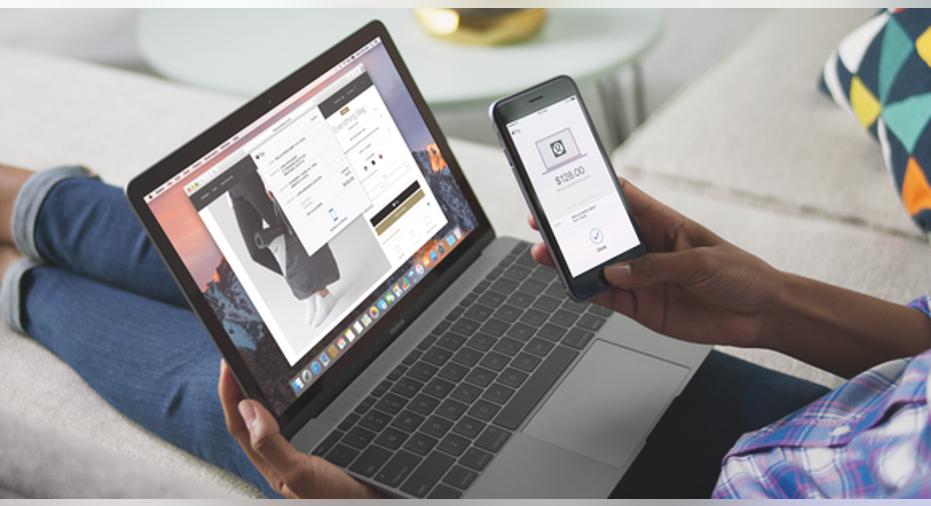The Next iPhone Wants to Look Into Your Eyes

Expectations for the 2017 iPhone are running high, given the fact that it will be the 10th-generation of Apple's (NASDAQ: AAPL) most important product. As always, a steady stream of supply-chain leaks are stoking speculation as to what features the Mac maker may or may not include. The most expensive feature-packed model may even set customers back over $1,000. Today's rumor comes from the notoriously hit-or-miss DigiTimes, which says that in addition to an OLED display and wireless charging, the device will also include iris-scanning technology.
A boulder of salt
As always, investors should treat any and all iPhone rumors with a healthy bit of skepticism. That's especially true since we've heard similar reports before. Apple first started exploring iris-scanning technology back in 2014, and DigiTimessaid in July 2016 that the iris-scanning feature wouldn't be included until the 2018 iPhone. A month later, the same outlet said 2017 would be the year Apple would debut the technology after placing orders for iris-recognition chips with Taiwan-based Xintec.
Separately, there are conflicting reports that Apple may instead prefer to use some type of facial recognition system, as Apple has filed numerous patents around bio-recognition methods.
Biometrics are all the rage right now
It makes sense that Apple is exploring iris-recognition technology; what's less clear is the timing of when Apple will pull the trigger. Iris recognition would be a strong complement to Touch ID, adding another layer of biometric security. Iris scanning is even more secure than fingerprint scanning since it's harder to fake. You may remember when researchers cracked Touch ID shortly after the feature's launch in 2013, although it still stands that Touch ID is still vastly superior to alpha-numeric passwords.
Imagine Apple Pay using iris recognition. Image source: Apple.
Beyond logging in, it's also easy to imagine how Apple may wish to add another layer of biometric security to Apple Pay, making the company's mobile payment service even more secure.
Everybody's doing it
This is an area rivals have already been exploring. Microsoft (NASDAQ: MSFT) included an iris scanner and Windows Hello, Microsoft's biometric login functionality, in 2015's Lumia 950 and 950 XL. The software giant has yet to bring iris recognition to other Windows Hello-enabled devices, although many Windows 10 PCs can use facial recognition technology.
Samsung's Galaxy Note 7 from last year also included an iris scanner, which in addition to its propensity to spontaneously combust was a differentiating feature from Samsung's other flagship devices from 2016 like the Galaxy S7 or S7 Edge. While the South Korean company's initial efforts to popularize iris-scanning technology went down in literal flames, the forthcoming Galaxy S8 is expected to feature an iris scanner. Samsung also launches its Galaxy flagships in the spring, and the S8 is expected to be unveiled in March ahead of an April launch.
Apple cares little about being the first -- it just wants to be the best. If it can implement iris scanning in a more seamless and integrated way than rivals, it could accelerate the popularization of biometric security better than anyone else.
10 stocks we like better than AppleWhen investing geniuses David and Tom Gardner have a stock tip, it can pay to listen. After all, the newsletter they have run for over a decade, Motley Fool Stock Advisor, has tripled the market.*
David and Tom just revealed what they believe are the 10 best stocks for investors to buy right now... and Apple wasn't one of them! That's right -- they think these 10 stocks are even better buys.
Click here to learn about these picks!
*Stock Advisor returns as of February 6, 2017
Teresa Kersten is an employee of LinkedIn and is a member of The Motley Fool's Board of Directors. LinkedIn is owned by Microsoft. Evan Niu, CFA owns shares of Apple. The Motley Fool owns shares of and recommends Apple. The Motley Fool has the following options: long January 2018 $90 calls on Apple and short January 2018 $95 calls on Apple. The Motley Fool has a disclosure policy.



















